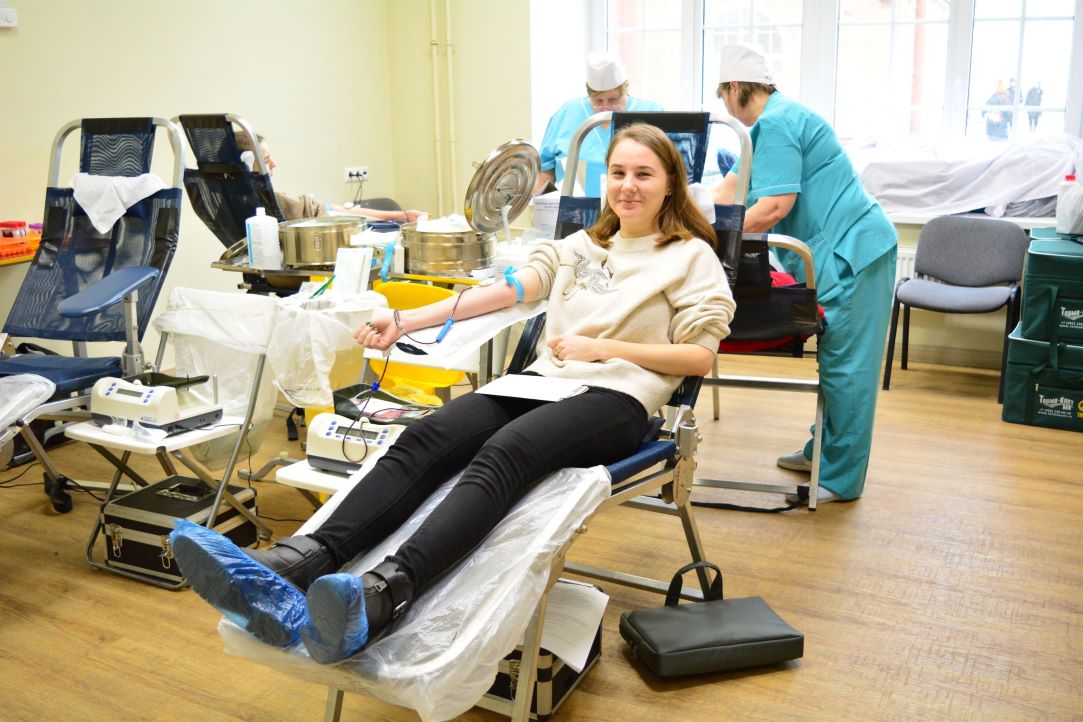What Is It Like To Be A Donor?

Annually our university hosts a wonderful event - Donor Day.
We talked to Julia Pletneva, (a 4th year student majoring in Law), about what it is like to be a donor and look through a couple of donation myths for those who still doubt whether to go to the action next year or not.

I learned about the Donor Day campaign as early as in the 1st year, but due to various circumstances (there was no registration at the place of stay / was away) I did not participate until this year, although I really wanted to do it earlier.
I went to the action in order, firstly, to benefit people (maybe my blood will once save someone’s life), and secondly, to “renew” my body.
During the blood donation, my head was a little dizzy, but then it passed. After the procedure, I had a fainting state (it started to get dark in my eyes, lethargy appeared in my whole body), but the medical staff promptly brought me to my senses:)
The nurses who were directly involved in the collection of blood told me: “You need to do the transfusion yourself! Why did you come!?”, and I decided that most likely I wouldn’t take part in such an action, but rather I’ll volunteer in some kind of another area!
However, the experience was rewarding! The following days, by the way, I felt a surge of vigor and pride in my decision to participate (despite not feeling well).
Donation Myths
1. Donation is contagious: when giving blood, you can easily “pick up” some kind of infection.
NO! This is not possible: all instruments, needles and transfusion systems used in blood sampling are disposable. They are disposed of immediately after use. Donor infection during blood supply is excluded.
2. My blood type is too common (or, conversely, rare); nobody needs it.
NO! This is a big mistake. If the blood group is common, then there will be many recipients with such a group. And, of course, you need a lot of such donors - because every day someone needs their help. And if the blood type is rare (“Rhesus negative” or fourth), then there are few patients, but there are few donors, so every donor who has a rare blood type is very valuable.
3. Donation is bad for health: I’m losing my blood! And for my body, it is not superfluous.
NO! Our ancestors lived in the wild, often injured and lost some blood. From this point of view, the life of a modern person is safer: he is not attacked by saber-toothed tigers, he does not have to climb rocks and climb tall trees. But nature "from memory" gives him blood - with a margin. Sometimes this stock is useful to "dump", and even better - to share it with those who did not have enough of their own.
4. Donation is related to nationality: for people of a certain nationality, blood from a donor of the same nationality is best suited.
NO! At the level of cellular composition, the blood of all people is the same: each of us has lymphocytes, red blood cells, platelets, etc. in our blood. The blood of all people is divided into 4 groups - I, II, II, IV. In addition, the blood of two people with the same blood group can differ in Rh factor: it can be positive (in 85% of people) or negative (15%). For the recipient, blood from a donor with the same group and Rh factor is suitable. No other differences exist. There are no elements in the blood that can talk about nationality. Therefore donation is supranational
More information in the group https://vk.com/donorspbhse
Text by
Julia Morozova
